Carl Borack was something of an enigma to me when I first encountered him in 1979. By that time, he had traveled the world, won the US Nationals (foil), been on an Olympic team and produced his first feature film in Hollywood. After 2 years at Cabrillo Community College, I had transferred to San Jose State to train under Michael D’Asaro. Carl, good friends with Michael and many of the San Jose fencers, would stop into the 7th Street salle when he was in town visiting Mike & Gay. Now, I don’t know if others have felt the way I did as a young whippersnapper but when I would meet a ‘retired’ competitor, regardless of their past success, I put them in a particular corner of my mind. “You don’t have to know how to beat them. Focus on others.” Likewise, I imagine, Carl may have seen in me (and it’s unlikely I was noticed) an uninspiring college student of Michael’s with just a couple of years of fencing under his belt and a long way to go to break into the top ranks of that National fencing scene. (I never did.) Since I wasn’t in Michael’s social circle, I didn’t have an opportunity to cross paths with Carl in a non-fencing venue.
Carl and Michael D’Asaro trying to stay warm at a Nor Cal beach in 1979.
But what really caught my attention was learning that Carl worked in Hollywood. I had dreams of Hollywood work, although my primary interest was in animation rather than live action, Carl’s bailiwick. Still. Carl was one of the handful of people I ran across prior to the start of my own career who helped me realize that working in Hollywood was an achievable goal. Not because I’d do the same work as those who influenced me to pursue it, but because I recognized that there was space. People got work. What kind of work had to be figured out or fallen into, but work was there to do. Find it, make it, whatever, it was an achievable goal.
A young Hollywood entrepreneur. With camera.
When I think about the influence Carl had on me, a peripheral, unintended consequence in the best light, and then think about the impact Carl has had on the fencing community as a whole, I am taken aback, realizing that the influence he has wielded in that world has been entirely intentional on his part. His focus on the needs of our community has driven him to attain goals that have helped dozens, if not hundreds, of fencers in the past 40 years and will continue to influence the success of US fencing for the foreseeable future.
The first go-round with fencing. Carl at the age of 9 with jacket, glove & swords.
Carl began fencing at the age of 9 in his home town of Los Angeles, California at an afternoon program at the Westside Jewish Community Center, a short hop from the famous Miracle Mile. His coach was Mel North. Carl enjoyed it so much he began to attend Mel’s club on Saturdays to supplement his one-day-a-week school class. After a year, Carl’s family moved and fencing stopped until his freshman year of high school. Frustrated with freshman football, a friend suggested they take up fencing and Carl agreed to try again. So at 14, Carl once again found himself in a fencing club and once again his coach was Mel North.
Mel was a fixture in LA’s fencing scene at the time and for many years to come, coaching both at his own club, Salle du Nord, and at UCLA. He gave Carl a superb grounding in the sport, teaching at once a classical style coupled with excellent tactics and strategy. Mel was a passionate coach, tough on opponents and officials, but dedicated to the success of his students.
The program cover for the 1965 Junior World Championships, Carl’s first international fencing event.
Carl had so dedicated himself to the sport that in 1965 as a high school senior, age 17, he traveled to Rotterdam, the Netherlands, to attend the Junior World Championships. The Junior World event had only been taking place since 1953, and in 1965 the United States did not field a team or send representatives, so Carl was essentially on his own. He traveled with only his own coach for support. The US didn’t begin to send fencers or cadre to the JWC’s until 1968, after Carl had single-handedly proven the benefit of the experience. The Junior Worlds were eye opening for Carl. Here was his first opportunity to witness the pinnacle of fencing, which in turn enlarged the vision for his own potential. He returned to the following year’s Junior Worlds, this time on his own, in Vienna. Also in 1966, he won the first ever US Under-19 National Championships in epee, and traveled with Salle du Nord teammate Joe Elliot to Moscow for his first Senior World Championship.
Carl Borack and Joe Elliot at the 1966 World Championships in Moscow.
These exceptional experiences were a springboard to additional success in US National events. He took 3rd in the epee Nationals in 1967, his first Senior final, which qualified him for the Pan American epee team that won Gold in Winnipeg, Canada. In 1968, Carl made the Olympic Squad in both foil and epee, ending the season as 2nd alternate to the Olympic epee team, and in 1969 won the Men’s Foil National Championship. In the years between team selections, Carl had excellent results at many major competitions including the Maccabiah Games and the Pan American Games but honestly, his performance at the 1971 Nationals where he made the finals – in all three weapons – has to be the most astonishing feat of all. From there, he was selected to be on the foil team for the 1972 Munich Olympics.
In 1969, 21 years of age. At that time, he was the youngest fencer ever to win the US foil title.
Post-Olympics, with a few forays back into the mix, Carl retired from competition to focus on his professional career as a producer in Hollywood, where he has been very successful and covered a lot of different ground. Movies, commercials, plays, documentaries. He’s been in it and around it, fighting and winning those battles over the years, and probably losing a few bouts along the way as well. It’s Hollywood after all. As a metaphor for fencing, it seems apt.
However it’s the choice Carl made to support fencing in his own particular way that makes his contribution to the sport so unique. What he recognized after completion of his competitive career was that support for athletes trying to make their way at international competitions had barely progressed from how things had been in his own experience. That is to say, slightly better than non-existent. With purpose and intent, he set out to make a difference in that arena. In 1977, he met up with the US Junior World team in Vienna, Austria to, in his words, “take care of them”. He did this on his own time and his own nickel. Barely 10 years removed from his personal experiences of traveling to international competitions without cadre or support of any kind, he had a very clear notion of the type of issues facing the individual athletes and stepped forward to make a positive difference for this next generation of fencers.
In Vienna, 1977, Carl stands, left, with Jean-Jacques Gillet, Yves Auriol and Michael Marx. Since he was at the event in an unofficial role, Carl didn’t get the same vintage sweats the others had. You can see that Yves and Michael’s suits have a USA Fencing patch on the left side, while Carl’s shows the USA letters.
I heard an athlete’s perspective about this by talking with Michael Marx, eight time US National Individual Foil champion, Silver medalist at the World University Games and five-time Olympic team member – four in foil, one in epee. Now, there is a great back-story to tell about Michael’s meeting up with Carl in Vienna for the 1977 Junior World Championships and what it meant to him personally to have Carl’s help and support but that’s going to require its own telling on another day. For now, let’s say that Michael had known and respected Carl for several years. Indeed, Carl had provided effective advice at a critical moment to help propel Michael as a then-17 year old to his first National title. Vienna was different. Carl had taken on a semi-formal role with the team and made his presence felt by providing kindness, timely advice and inspirational leadership. He stood up fearlessly to authority when needed, providing a backup for the athletes that, on his own at international competition, he’d never himself had. It would be a few years before Carl was recognized by fencing’s governing body for his contributions and given formal roles with teams but Vienna set the stage for engagement in this new role.
Carl in front of the team at the 1985 World University Games in Kobe, Japan.
That innate quality, to support and defend, is something that can be all too rare. And its interesting to me that it comes out in Carl so clearly in his work with fencers. That other world he roams where he’s made his career, the Hollywood Producer world, has many fewer examples than the national average of the kind of quality that Carl has revealed of his true nature. Does he only expose this side of himself with fencers? I’m sure Hollywood reveals a side of him as tough negotiator and hard nose player when needed. But then, he was, at his time, the youngest National Foil champion ever. So he was already tough. “Hollywood”, in the broadest sense, can be rife with deceit and treacherous paths. Not all aspects of it certainly, and there is a very wide array of niche Tinseltown realities. My career took me into the realm of visual effects and animated cartoons, and while even that world is not always happiness, glee and chocolatey snacks, its usually a step removed from the Hollywood craziness of scripts in turnaround and casting couch horrors. Looking at Carl Borack through the long lens of all he has done for the sport of fencing and how he has made it his own mission to lend support and care to the driven and passionate athletes that have made up the batting orders of our teams over the last several decades, he’s revealed a positive, motivating inner nature that shines clearly through his contributions to the sport. Where he first saw need, he stepped forward to try to fulfill that need. As time went on, he took on greater and greater roles of responsibility. But it’s hard to question that his motivation has always been to smooth the path for the fencers who came along after his own time of raising the cup on the piste. My guess about Carl running a production company in Hollywood? He’d have your back. And it doesn’t get better than that.
Carl with Nick Bravin, 1996 Atlanta Olympic team White House visit.
There’s a lot more that could be said of Carl’s achievements in his career and his passion for promoting fencing and fencers. The goals Carl set and attained in his effort to form a better support system for the athletes our coaches across the country work tirelessly to prepare have materially shaped the kinds of results we see today from the performance of our fencers. Our fencers are as good as anybody. Some have stood at the very apex of our sport, an accomplishment hardly imaginable thirty years ago. Of course, a great number of people have played a part in the rise of the American fencer. Carl’s contributions, big and small, the subtle ones and the personal ones, helped crack the frame that held us in check. Americans are up on the podium at World Cups and Grand Prix events and no one is surprised. Just remember, those podium steps didn’t make themselves. Each one was a little plan accomplished, an idea attained. Carl Borack had plans and ideas formed through his own experience and was willing to supply the vision and sweat equity to help make dreams come true for a younger generation of competitors. Dream it, achieve it. That gets it done.

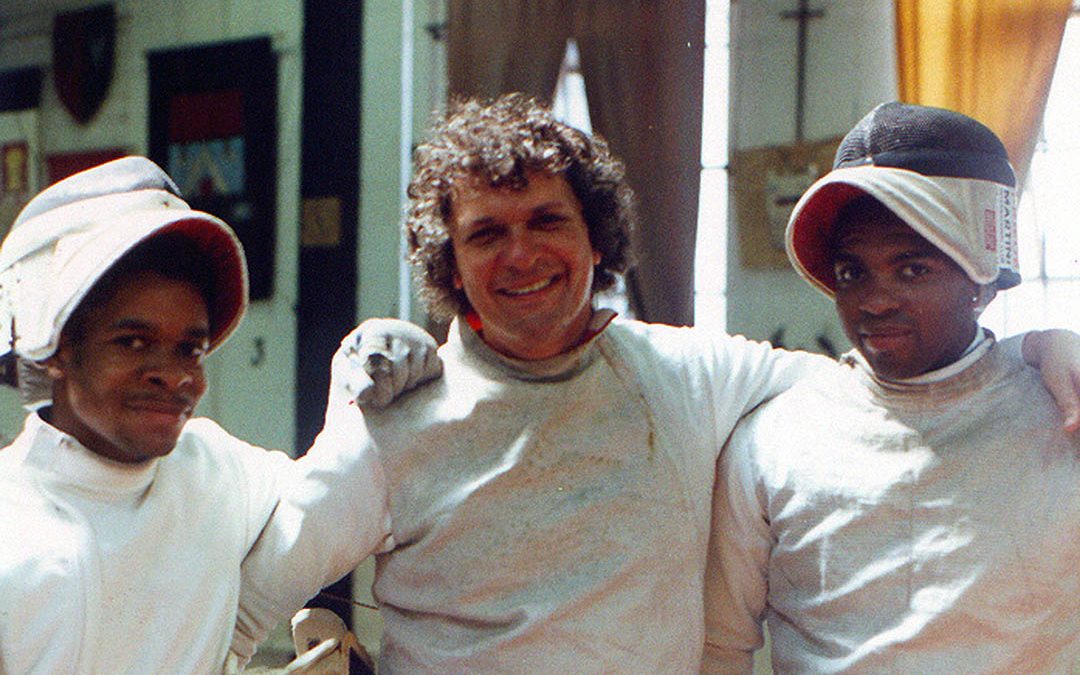
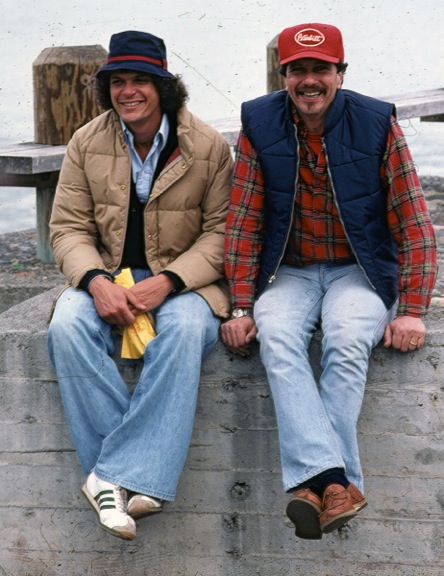
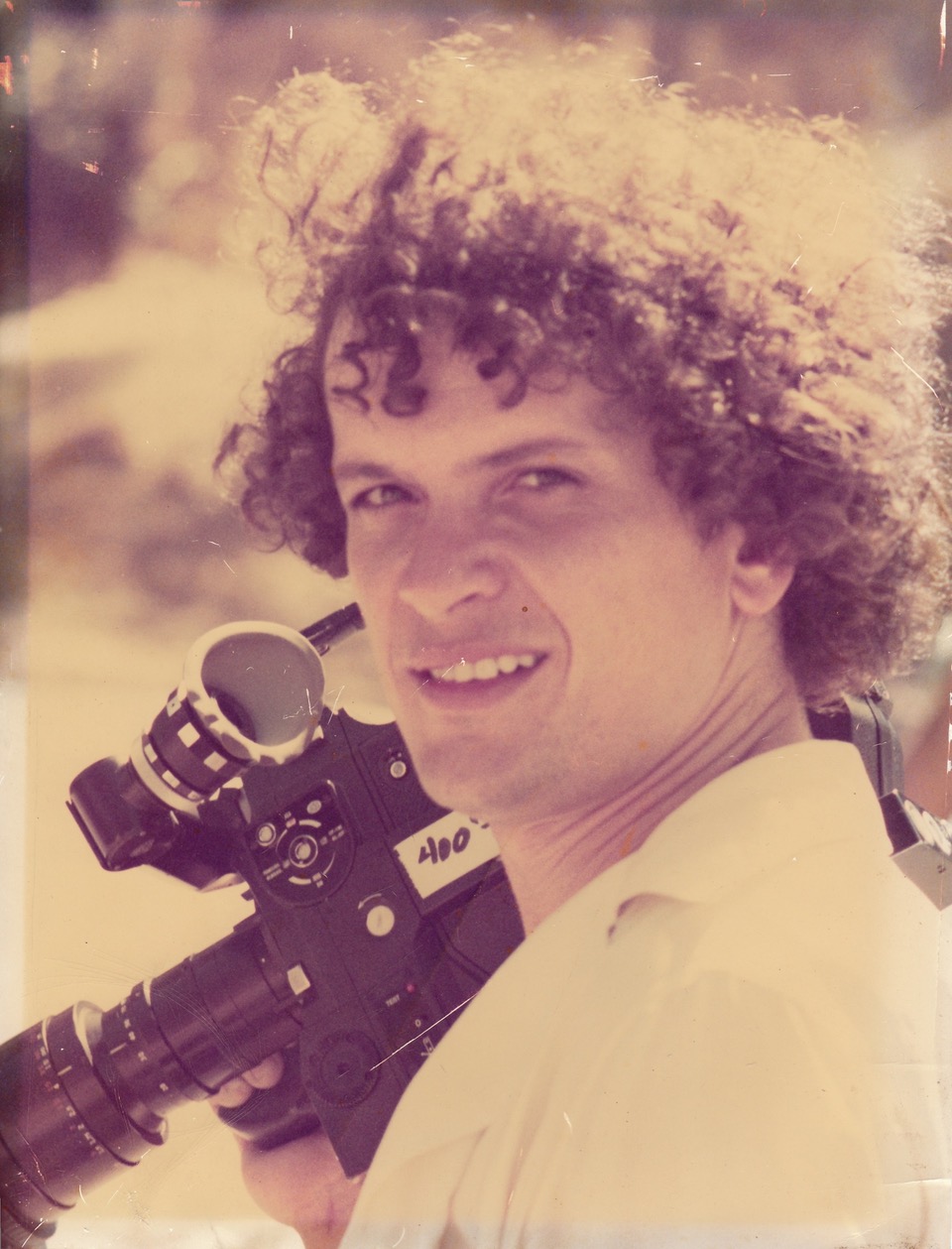
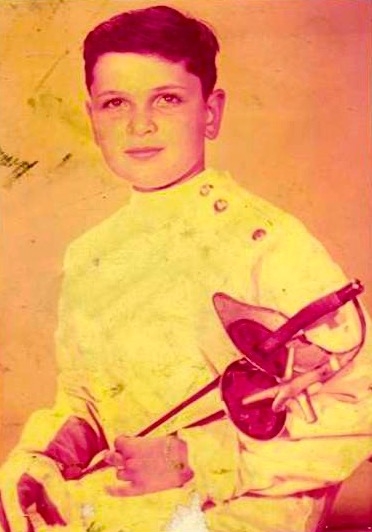

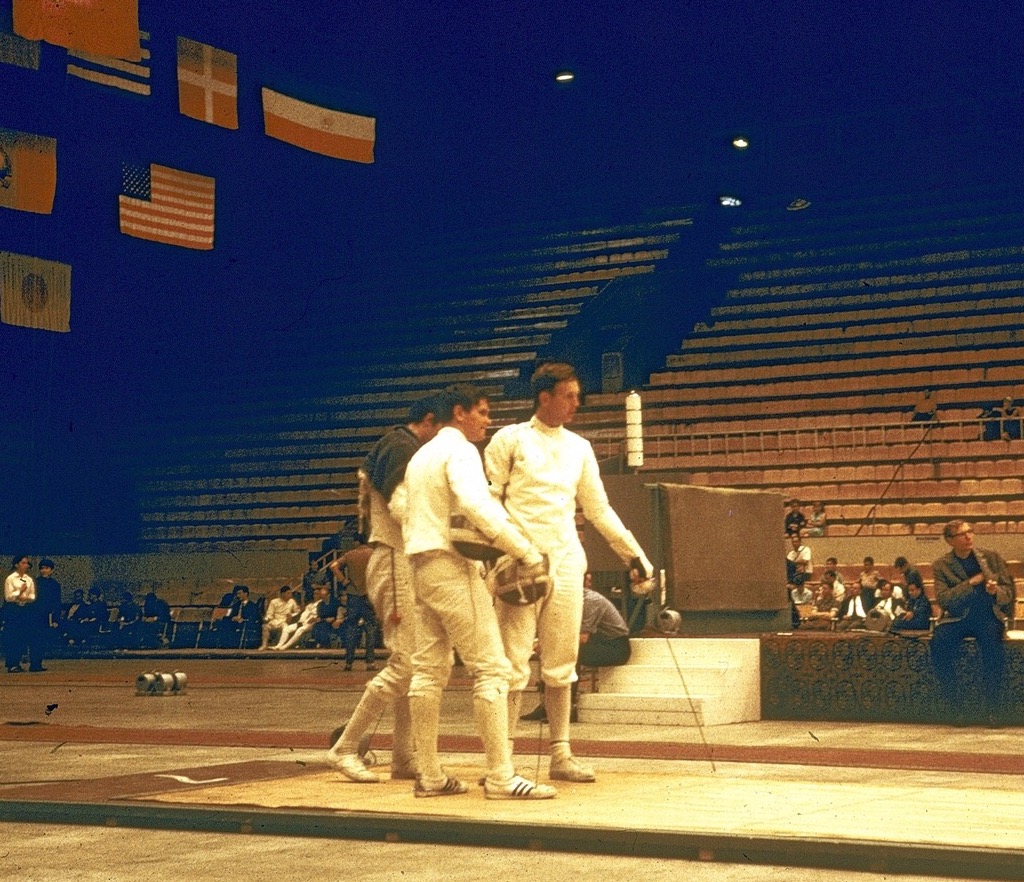

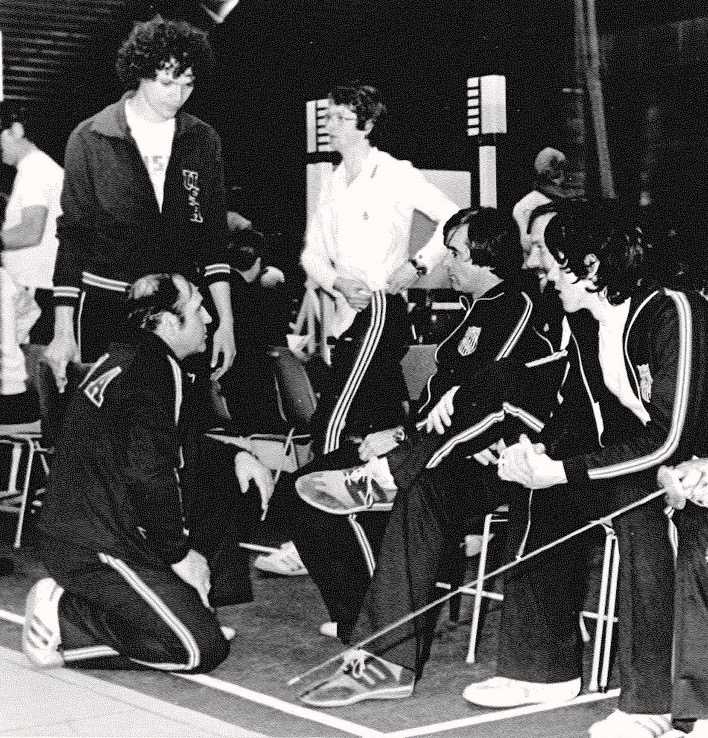
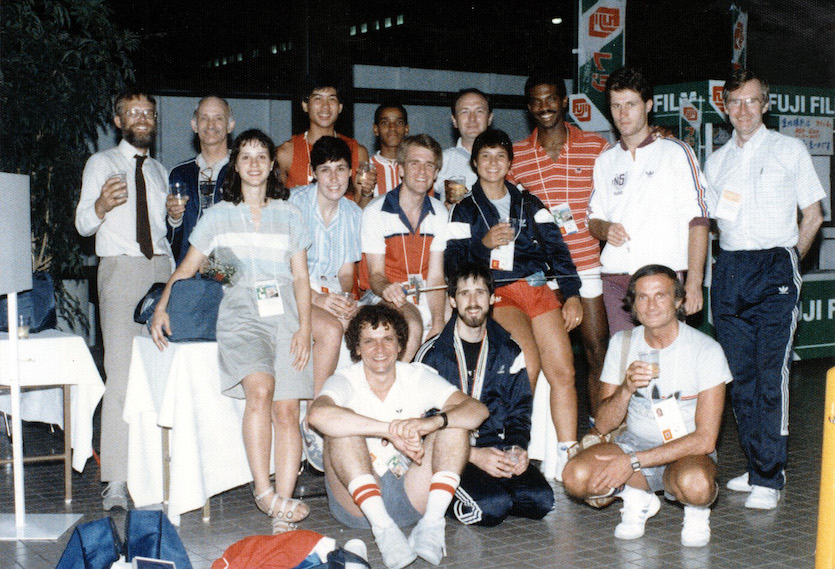
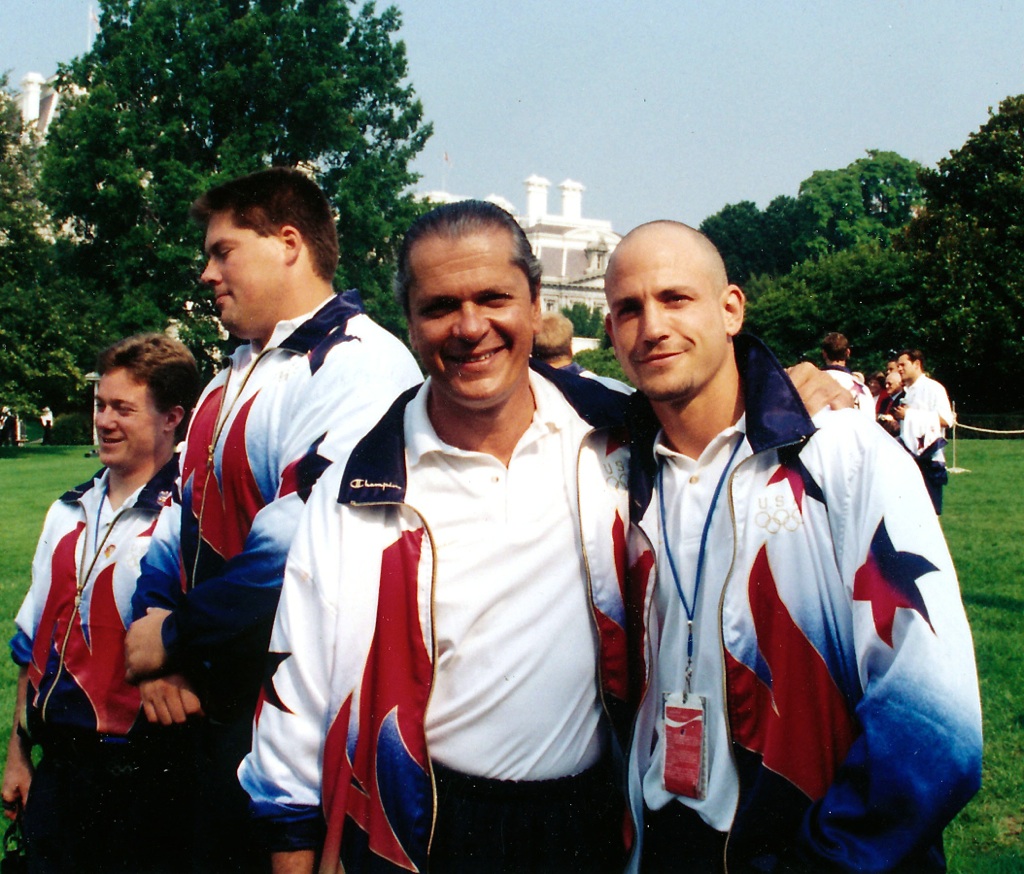

Wonderful well written article.
Carl’s achievements in fencing are outstanding yet somehow eclipsed by his dedication, character and support of others. Always indebted and inspired by Carl!
Well said! Carl’s enthusiasm for life and his total dedication to his chosen sport have made a significant difference to a couple of generations of fencers. Thanks for bringing that out
Lovely article.
Carl had a tremendously positive influence on our fencers all over the US, but especially on the west coast. He continues to work tirelessly behind the scenes even now. Those of us who have known Carl for s long time know about his passion and knowledge of our sport. He is so happy to see our fencers performing so well on the international stage, and he has had a big role in transforming the USFA to help get us to where we are now. It’s an honor to have known Carl as a great friend since the mid 1970’s and see all that he has done for USA Fencing.
What a wonderful article about this great athlete!
I went to High School with Carl. Such a wonderful career! Congratulations!
Wonderful article about a great fencer and a good friend in our beloved sport!
I worked with Carl in the movie industry for 20 years and he was an incredible advocate and
tireless worker and promoter for fencing including telling my anna it would help them get into
college. He was also great to work with
It is long overdue that a tournament is to be established in his name Carl Borack’s Grand Prix International and put on the FIE calendar! Do I have your support guys?
Branimir Ben Zivkovic
What a great way to spend a productive and accomplished life. Congratultions Carl
What a great article and what a great tribute to you Carl. Great way to spend a productive and eventful life.
Wonderful article about one of the most amazing, generous and kind human beings I know.
Congratulations Carl!
What a marvellous text which gave me the perfect summary of all I didn’t know about Carl’s career as active fencer and later on as official and promoter. I had lost touch with him until recently when the FIE’s 105th anniversary was celebrated in Paris. We got to know each other in 1966 during the Matini-Rossy Tournament at the annual NYAC in New York, visited him on my Greyhound-tour through the States after the fencing in L.A. and met him again shortly afterwards in my hometown Vienna. The text and the fotos remind me of a great time and of many American fencers I was lucky to meet (Hi, James Melcher,e.g., how are you?)
What a great article. Carl has done so much for American Fencing. Thanks for preserving his great work by writing this article!
Great article about Carl’s lifetime achievements and support of American fencing.
A marvelous story of a big star of American Fencing, with fabulous photos of Carl and his stellar teammates and legendary colleagues. Carl has inspired fencers of all ages by providing excitement and fun to the competitive sport of fencing, and Doug’s article keeps it going!
That’s a fantastic article. Carl has accomplished so much on behalf of American Fencing in every capacity! I am very proud of my friend.
Great article about great man